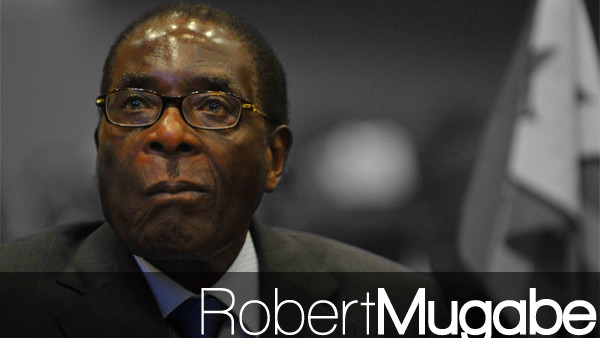10 Most Brutal African Dictators
8. Robert Mugabe - Zimbabwe

During the 1970s, Robert Mugabe was viewed as a revolutionary hero who led the then-Rhodesia out of white minority rule into an era of self-determination for the new state of Zimbabwe. Thirty years later, he jealously clung onto power to become the world's oldest head of state, internationally reviled as an undemocratic despot, a man with scant regard for human rights who allowed his country to lapse into economic ruin.
Thanks to his successful dispossession of the white supremacist Ian Smith as part of the Zanu-PF nationalist party, Mugabe maintained considerable sympathy across Africa. Parallels between Smith's regime and Mugabe's were striking. Both used their secret police to root out and quash all political opposition. Both embarked upon vicious racial campaigns aimed at limiting the rights of an entire ethnic group. And both steadfastly stood in the way of true democracy existing in the country.
Mugabe's reign was full of such ironies. In 2015, he celebrated his 91st birthday; under his power, life expectancy in Zimbabwe was just 58 years old. To honour the occasion, the leader held one of the most disgustingly lavish ceremonies ever witnessed on the continent. An entire menagerie of animals was slaughtered for the festivities, and the party was estimated to have totaled £575 million. At the end of his reign, inflation had rose to such a level that one hundred trillion Zimbabwean dollars had an equivalent value of one British pound, whilst one in three children suffered stunted growth due to starvation. In 2013, Mugabe claimed his party "delivered democracy on a platter". Yet in 1983, Mugabe's Fifth Brigade slaughtered some 20,000 Ndebele people in Matabeleland, with the objective of wiping out the rival Zapu party's support in the province.
In the Shona language, the massacre was known as Gukurahundi - 'the early rain which washes away the chaff before the spring rain.' At the age of 93 and after holding power for almost four decades, it seemed the only way Zimbabweans would achieve their own political Gukurahundi was with Mugabe's death - statistically overdue by 35 years.
Then the unthinkable happened. In November 2017, the long-suffering population woke to news of a military coup in all but name, which finally forced the dictator from power. Whether the putsch - more the result of Zanu-PF squabbling than a political revolution - would lead Zimbabwe to true democracy remained uncertain, but Mugabe's expulsion allowed the nation to breathe a long-awaited sigh of relief. At least, for the time being.